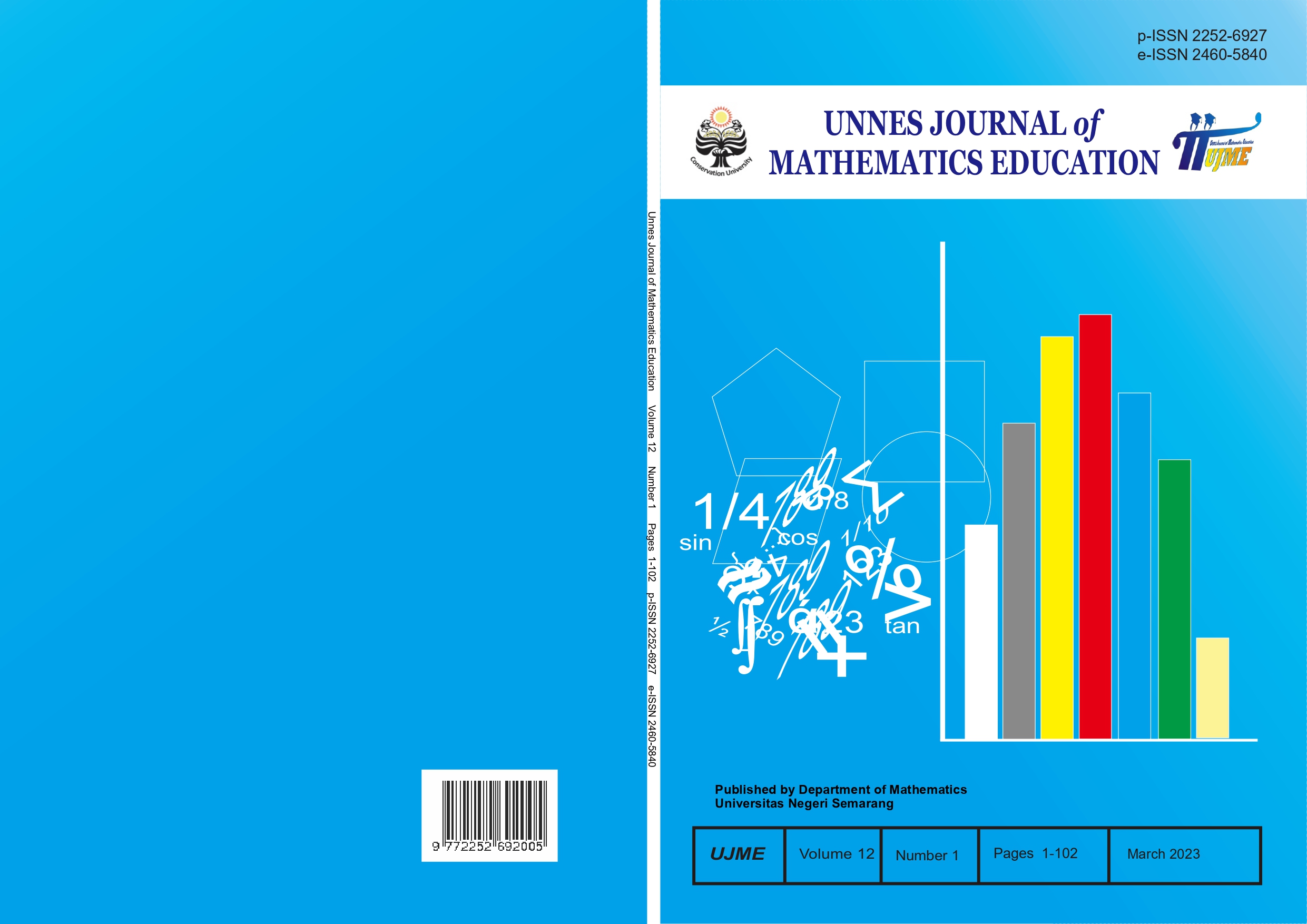Mathematical Representation Ability in the Implementation of Ethno-Flipped Classroom Model Assisted by Interactive Media Based on Self-Efficacy
##plugins.themes.academic_pro.article.main##
Abstract
This study aims to (1) determine the effectiveness of the Ethno-Flipped Classroom model assisted by interactive media on students' mathematical representation abilities, and (2) describe the mathematical representation abilities of students who have high, medium and low self-efficacy. This study was mixed-methods with sequential explanatory design. Retrieval of quantitative data using a mathematical representation ability test, while collecting qualitative data using self-efficacy questionnaires and interview guidelines. The population in this study were students of class VIII SMP N 2 Susukan, Banjarnegara Regency. The samples of this study were 25 students from the experimental class and 26 students from the control class. The results showed that (1) Ethno-Flipped Classroom assisted by interactive media was effective on mathematical representation abilities, (2) subjects with high self-efficacy were able to fulfill all indicators of mathematical representation abilities, namely verbal, symbolic and visual representations, (3) subjects with medium self-efficacy can fulfill indicators of verbal and symbolic representation, (4) subjects with low self-efficacy only fulfill indicators of verbal representation.
##plugins.themes.academic_pro.article.details##
References
Chapman, O. (2010). Teachers' self-representations in teaching mathematics. July, 289–294. https://doi.org/10.1007/s10857-010-9153-9
Creswell. (2015). Planning, Implementation, and Evaluation of Qualitative & Quantitative Research (Soetjipto (ed.); 5th ed.). Student Library.
Istiqlal, M. (2017). Development of Interactive Multimedia in Learning Mathematics. JIPMat, 2(1). https://doi.org/10.26877/jipmat.v2i1.1480
Lunenburg. (2011). Self-efficacy theory: Implications for the occupational health nurse. AAOHN Journal, 14(1). https://doi.org/10.1177/216507999103901202
NCTM. (2000). Principles and Standards for School Mathematics. The National Council of Teachers of Mathematics.
Permendikbud. (2014). Regulation of the Minister of Education and Culture Number 58 of 2014 concerning the 2013 Curriculum for Junior High Schools/Madrasah Tsanawiyah.
Ramadhani, R., Syahputra, E., & Simamora, E. (2022). Ethno-Flipped Classroom Model: A Recommended Model for Learning Mathematics in the New Normal Period. AXIOM : Journal of Education and Mathematics, 10(2), 221. https://doi.org/10.30821/axiom.v10i2.10331
Ramdani, Y. (2006). The study of understanding mathematics through the ethics of mathematical modeling. Journal of Social and Development, 22(1), 2.
Santia, I. (2018). Analysis of Middle School Students' Mathematical Literacy Ability Based on Student Learning Motivation. JIPMat, 3(2), 81–85. https://doi.org/10.26877/jipmat.v3i2.2748
Santrock, JW (2009). Educational Psychology. Salemba Humanika.
Ulya, MR, Isnarto, Rochmad, & Wardono. (2019). The Effectiveness of Flipped Classroom Learning with Indonesian Realistic Mathematics Approach to Representational Ability in terms of Self-Efficacy. PRISMA Journal, 2, 116–123.
Zaenuri, Z., Nastiti, P., & Suhito, S. (2019). Mathematical creative thinking ability based on students' characteristics of thinking style through selective problem solving learning model with nuanced ethnomatematics. Unnes Journal of Mathematics Education, 8(1), 49–57. https://doi.org/10.1007/978-3-319-15347-6_301020
